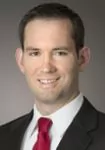Last month, the Fourth Circuit Court of Appeals agreed to hear an interlocutory appeal on the issue of whether to allow statistical sampling to prove liability and damages in a False Claims Act (FCA) case. By taking this unusual step, the Fourth Circuit will have the opportunity to weigh in on what has become an increasingly hot and divisive issue among district courts. The court's ruling could be a game changer in FCA litigation – especially in health care matters, where statistical sampling looks especially attractive to the government due to the large numbers of claims often at issue.
Courts have recently permitted statistical sampling to prove liability in several FCA cases. For example, in September 2014, a district judge in Tennessee ruled in a Medicare fraud case that government attorneys could extrapolate from a small sample of billing statements to hold defendants liable for false claims. U.S. v. Life Care Centers, Consol. Case Nos. 1:08-cv-00251 & 1:12-cv-00064 (E.D. Tenn.). A few months later, a district court in Florida cited Life Care Centers in holding that sampling is appropriate under the FCA, even if the methodology remains open to attack. U.S. ex rel. Ruckh v. CMC II, Case No. 8:11-cv-01303 (M.D. Fl.).
U.S. District Judge Joseph Anderson bucked this trend in United States ex rel. Michaels v. Agape Senior Community, Inc., Case No. 0:12-3466 (D.S.C.), a case involving Medicare and Medicaid reimbursements to the defendants' network of nursing homes. In Michaels, the relators sought to use statistical sampling to prove damages on approximately 60,000 claims involving 10,000 patients. Judge Anderson ruled that the relator could not use statistical sampling, but must instead prove each claim individually. He agreed, however, to certify the question for interlocutory appeal. Interestingly, Judge Anderson had authorized the use of statistical sampling in another FCA case only a short time before the Michaels ruling. He distinguished Michaels in his order, asserting that sampling is appropriate only when evidentiary limitations ensure that there is no other way to prove damages.
A broad Fourth Circuit ruling in favor of sampling could have potentially crippling effects on FCA defendants dealing with a vast universe of potential false claims. Among other things, it would inject battles over statistical methods into FCA litigation, without obviating the need for defendants to maintain focus on rebutting individualized allegations. Conversely, an outright rejection of statistical sampling would seriously impair the government's and qui tam litigants' ability to bring certain large fraud cases presenting evidentiary challenges. Neither of these extreme outcomes appears likely. Expect, therefore, to see the court draw a middle path to allow statistical sampling in certain limited circumstances, perhaps based on the number of claims at issue, the availability and reliability of the data, or other factors.
The content of this article is intended to provide a general guide to the subject matter. Specialist advice should be sought about your specific circumstances.
